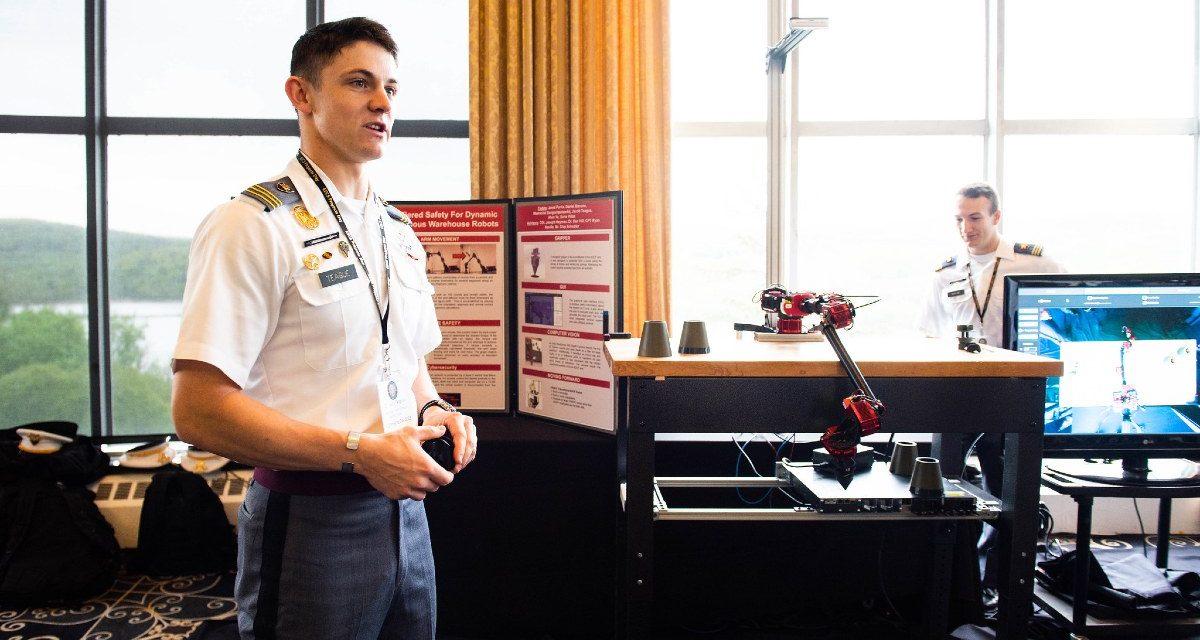Steven Gilland and Shane Reeves

It is 2033. A young infantry platoon leader is deployed to the frontlines of an austere environment, facing a peer adversary. This technologically advanced foe uses cyber warfare, advanced sensors, and autonomous drones to gather vast amounts of data, which is rapidly processed by artificial intelligence to enable lethal strikes by hypersonic missiles and other long-range fires. The platoon, along with its higher and adjacent units, is widely dispersed to lessen the potential damage of one of these strikes. Communications between these units are not functioning due to electromagnetic jamming, while GPS is also unavailable due to a successful barrage against the United States’ low earth orbit satellite constellation.
This is the future of national defense, and it will require the Army’s leaders to adapt to new and emerging threats. Every single platoon leader must be prepared for such a scenario—able to confront a highly capable opponent, while isolated, on a rapidly evolving battlefield. We will need these officers to not only respond quickly and effectively to new challenges, but also to do so with the moral and ethical judgment the American people expect of our fighting forces.
Preparing the Army’s junior leaders for the challenges ahead must begin as early as possible. Here at the United States Military Academy, we have forty-seven months in which to do so. At West Point, we have always been committed to preparing both our cadets and faculty to be leaders of character. Now we are committed to doing so in this new era of national defense, equipping them with the knowledge, skills, and ethical decision-making needed to effectively lead in volatile, uncertain, complex, and ambiguous environments.
One of the greatest advantages we can give young Army leaders is the ability to innovate. Innovation and technology have always played a critical role in military operations. From weapons to equipment to communication and logistics, advances in technology inevitably revolutionize the way wars are fought. In today’s world, with the rapid pace of technological change and the growing complexity of the security environment, it is more important than ever to foster a culture of innovation within our Army.
It is with this in mind that we announce West Point’s intellectual theme for the 2023–24 academic year: “Innovation, Technology, and the Future of National Defense.”
This theme will bring together departments, directorates, centers, programs, and offices across the academy, providing cadets and faculty with the interdisciplinary knowledge to encourage discourse and more efficiently and effectively educate future US Army officers to fight and win.
Innovation and technology have long been a part of West Point’s leader development mission. However, this theme will deepen our efforts with a yearlong focus on ensuring our cadets and faculty can think nimbly, identify new solutions to complex problems, and communicate these ideas effectively to others. We will continue to build on exiting partnerships with organizations like the Combat Capabilities Development Command and Army Futures Command, which provide opportunities for cadets to conduct research on Army priorities such as high energy lasers. This research on cutting-edge technologies is also enabled by our research centers and supplemented by internships with private and public organizations across the country and around the world.
We are constantly recruiting talented leaders onto our staff and faculty, including the likes of Mr. Abdul Subhani, the academy’s distinguished chair of innovation and strategic engagement. We are also sharing the important research our innovative faculty and cadets are leading through platforms like the Inside West Point: Ideas that Impact podcast—ensuring their insights and ideas inform discussions about key challenges and their solutions.
Specific events throughout the year will include conferences, new podcast episodes, and fireside chats spread across the academic year. The year will culminate in our annual Projects Day Research Symposium, where cadets showcase their innovative projects and research.
The United States Military Academy at West Point continues to lead the way in developing leaders of character, and this intellectual theme is intended to help align, inspire, and energize our efforts to do so. By focusing on innovation and technology, we are investing in our future. We must continue to push the boundaries of what is possible to stay ahead of our adversaries, but always in a way that is consistent with our Army’s and our nation’s values. By doing so, we can prepare our cadets and faculty to meet the complex challenges of the twenty-first century and to help ensure the safety and security of our nation.
No comments:
Post a Comment